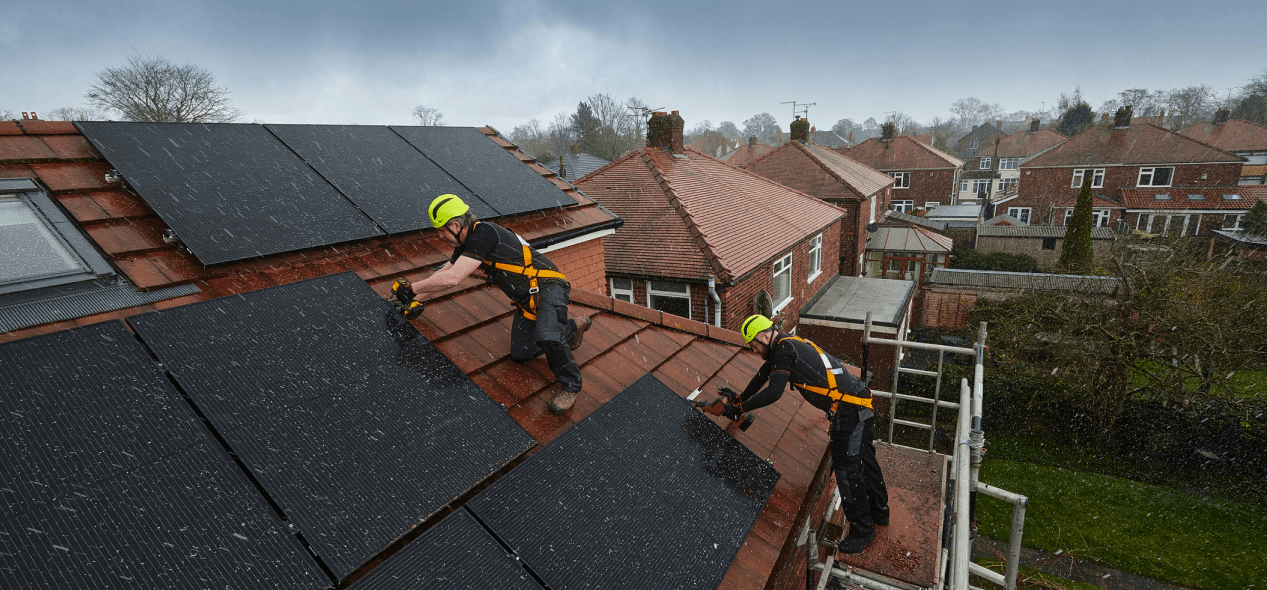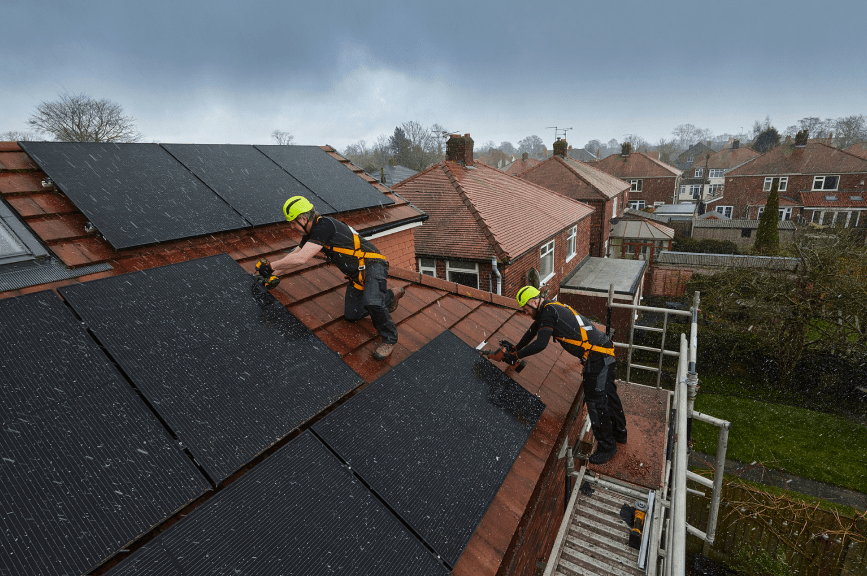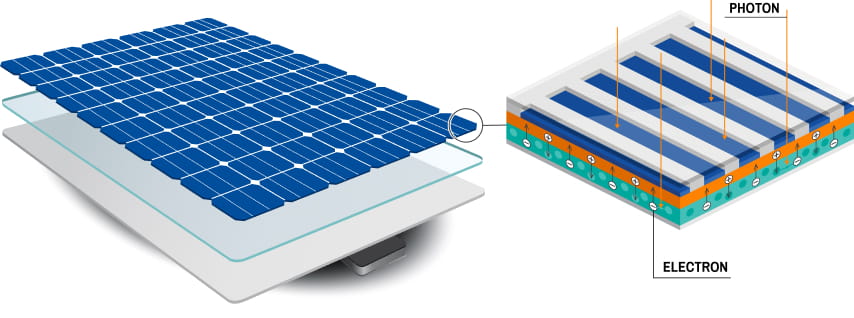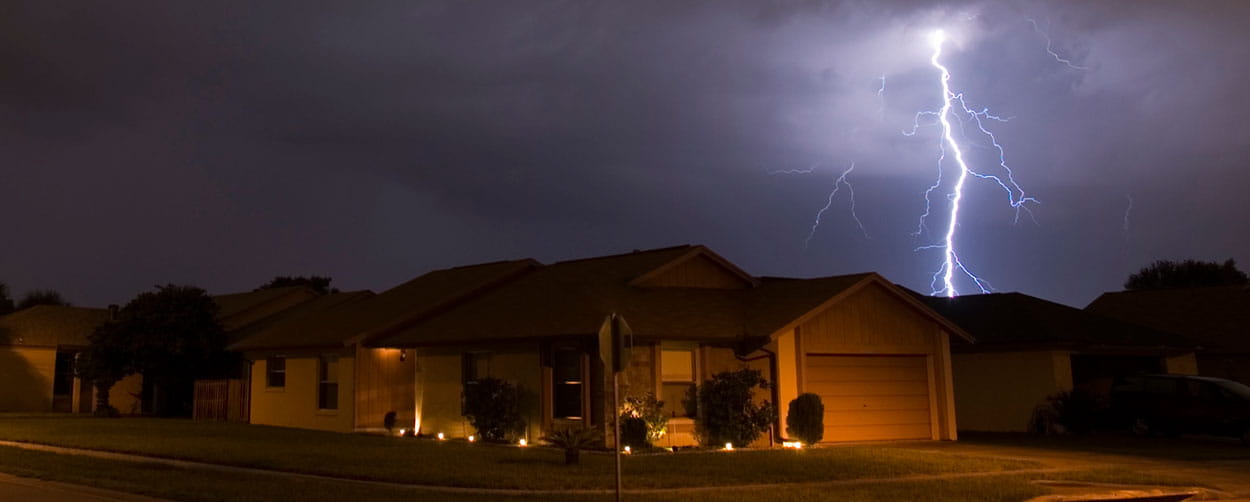

The pattering of rain on your rooftop after a very dry season is always a relief. But if you have solar or are thinking about installing panels on your home, you may wonder what happens to the energy your solar system produces when it rains.
The short answer: your solar panels will still capture and convert light into electricity during rainy or cloudy weather. So, if you live in an area that gets a lot of rain or has a number of overcast days throughout the year, don’t rule out solar panels.
However, there are a few things you should understand about what happens to a home solar system on dreary days.
How Solar Panels Work

The science behind solar energy is similar to magnetism, where opposing charges create a magnetic field. Solar electric panels are also called photovoltaic (PV) panels, which means "able to produce electricity from light." Each panel is made up of PV cells that absorb particles of light from the sun (photons) that knock electrons loose from atoms, creating an electric current.* But this form of electricity can't power your home. First, it must be converted from direct current (DC) to alternating current (AC) by flowing through an inverter before you can use the electricity.
While PV panels are most effective in direct sunlight, they can also use indirect sunlight to generate power, allowing them to work even when the light is reflected by rain or partially blocked by clouds.*
Expect Solar Production to be Lower
We need to understand that if sunlight is limited, so is energy production. On cloudy or rainy days, PV panels typically produce anywhere from 10% to 25% of their optimal capacity, experts say.* The amount of electricity your solar panels will generate will depend on the density of cloud coverage or extent of rain. If it’s sprinkling or clouds come and go throughout the day, your energy generation will be higher than it will be during a day of long, heavy downpour or dense, widespread clouds.
Rain can also be beneficial by washing away certain substances like dust, dirt and pollen that have the potential to reduce the efficiency of your solar panels.
What to do During Lightning and Thunderstorms

Because solar panels are electric devices, they're at risk of damage from voltage surges caused by lightning. When your PV panels are first installed, or your system is undergoing routine maintenance, be sure that your installer has properly grounded your system to prevent surges. In some cases, you may need extra protection — a smart and easy upgrade if lightning is common where you live.

Although infrequent, hailstorms can cause considerable damage when balls of solid ice fall from the sky. Will hailstones dent or shatter solar PV panels, too? It's very unlikely. The U.S. Department of Energy's SunShot initiative develops industry quality tests to ensure PV panels can survive harsh environmental elements, including hailstones. The hailstorm test involves shooting ping-pong-sized ice balls at PV panels in various spots at around 70 miles per hour. Before the panels are brought to the market, they must pass the hail test, among others that include extreme temperatures, mechanical stress, electrical stress and more.*
Add Solar Battery Storage to Help on Cloudy or Rainy Days
The energy your PV panels generate must be used in real-time unless you have battery storage. If you live in a rainy climate, adding a solar battery is a good way to store the power your solar panels generate and use it during less productive periods, like stormy and dismal days.
But battery storage isn't just for homeowners in the damp Pacific Northwest or the dreary East Coast. Adding battery backup enables you to have power during an outage and draw less electricity from the grid at night, when the sun is down.

At Sunnova, we offer solar, solar plus battery storage and battery storage add-on options. Therefore, you can decide to get your solar system now and add a battery later, install a battery at the same time you install solar panels, or add battery backup to a solar system you already have.
No matter what kind of weather you experience, you can benefit from solar PV panels. Our climate is changing — make sure your power doesn't.

